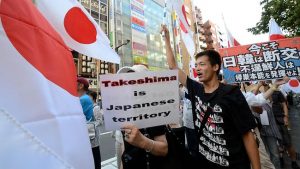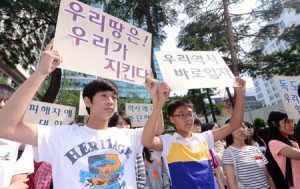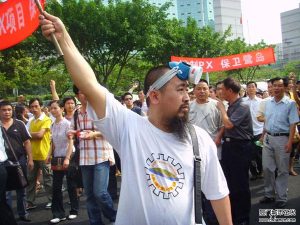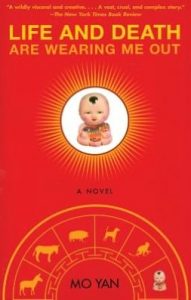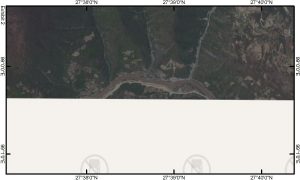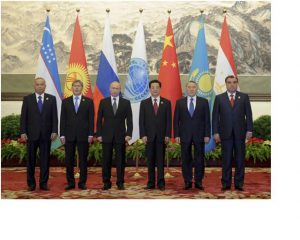Tokdo/Takeshima Island Dispute: A Call for Educators to Act towards Mutual Understanding
Memo #184 – The tiny island that lies between Japan and Korea – Takeshima (竹島) in Japan and Tokdo (독도) in Korea – is at the centre of a territorial dispute and serious bilateral tension. This is nothing new. The island, along with other remnants of Japan’s colonial aggression in Korea, has sparked diplomatic issues throughout postwar history. Despite unprecedented levels of cultural, academic, and economic exchange between the two nations, the dispute continues to be defined by a persistent legacy of colonialism and growing nationalism. Japanese and Korean political leaders demand that educators legitimate territorial claims by including these in their national curricula. But if educators comply uncritically, we will undermine future generations’ development of mutual understanding and respect.
竹島・獨島(ドクト)領土問題で教育の果たす役割とは:日韓相互理解へ向けて
Memo #184 (English translation available) – 日本と韓国の間に浮かぶ小島 ―日本側呼称は竹島、韓国側呼称は獨島(トクト)― を巡る領有権争いが、二国間に緊張関係をもたらしている。もちろん、この手の問題は何も目新しいことではなく、今件のような日本の過去の植民地政策の残滓は両国間の外交問題として戦後たびたび浮上してきた。今回の緊張関係に目新しい点があるとすれば、近年日韓の距離がとりわけ文化面において急速に縮まった中で、これが生じている点であろう。交流増加の一方で、依然として二国関係が過去の暴力の記憶と内向きなナショナリズムによって規定されていることを、今回の出来事は物語っている。領土問題が外交問題化するや否や、両国の政治家たちは挙って自己の領有権を正当化することを教育現場に指示した。だが教師たちがこの方針に無批判に従うならば、二国間の相互理解と尊重を将来の世代に育むという理想は更に遠のいてしまう。
독도/다케시마 영토 분쟁을 교육적 계기로 활용하자
Memo #184 (English translation available) – 최근 한일 양국 사이에 위치한 작은 섬 – 한국명 독도, 일본명 다케시마-을 둘러싸고 외교적 긴장 관계가 조성되고 있다. 물론 이와 같은 긴장관계가 조성된 것이 이번이 처음은 아니다. 일제의 한반도 강점은 독도 문제를 포함한 많은 식민주의의 상흔들을 한국에 남겼는데, 이런 상흔들은 전후 동아시아에서 발생한 여러 차례의 외교적 갈등의 도화선으로 작용하곤 했다. 최근 양국 사이에는 일찍이 두 나라가 경험해 보지 못한 수준의 경제적, 문화적 교류가 활발하게 진행되고 있었다. 하지만, 독도를 둘러싸고 벌어진 양국의 배타적인 민족주의의 발흥은 그 동안 이룩한 협력의 성과를 무색하게 하고 있다. 이런 상황 속에서 양국의 위정자들은 교육자들에게 독도에 대한 각국의 영유권 주장을 정당화하는 민족주의적 국가교육과정을 학생들에게 가르치도록 요구하고 있다. 만약 교육자들이 맹목적으로 이 요구를 수용한다면, 우리는 양국에 대한 상호 이해와 존중이라는 교육적으로 유의미한 가치를 다음 세대들에게 교육할 매우 귀중한 기회를 잃게 될 것이다.
China: Two Faces of Social Protest
Memo #183 – There was a dramatic rise of social protests in China in the 1990s. Since, popular contention has become a main form of interest articulation for social groups that suffered as a result of reform era government policies. While the accommodation of social protests has contributed to authoritarian resilience in China, it has also exposed fundamental weaknesses in the Chinese political system.
Mo Yan’s Nobel Prize in Literature – Interview with Dr. Christopher Rea
Memo #182 – An interview with Dr. Christopher G. Rea on Mo Yan’s Nobel Prize in Literature.
Mongolia Remains Key To US Strategy in Asia
Memo #173 – Mongolia continues its rapid ascent in the strategic playbook of the United States and the West. The US views Mongolia through an integrated lens balancing its economic interests with strategic concerns. As the world’s fastest growing economy (GDP growth at 17.3 per cent in 2011), Mongolia is an appealing target for foreign investors in sectors such as mining, nuclear power, and technology. For Washington though, security still trumps in Mongolia. The US continues to view Mongolia as a credible partner in an uncertain area filled with truculent neighbours.
Blocked Data Hampers Water Management Efforts in the GBM Basin
Memo #170 – The discussion is widening on the thorny problem of sharing water and managing trans-boundary flows among the five countries in the Ganges-Brahmaputra-Meghna (GBM) river basin.
China and the SCO – Influence and ‘Soft Power’
Memo #169 – The 12th annual meeting of the Shanghai Cooperation Organization (SCO) which includes China, Russia, and four Central Asian states, concluded in Beijing on June 7th. Growing Chinese influence and “soft power,” emphasizing persuasion over force, were much on display.
The Republic of China: Restoring a Father’s and a Nation’s Life Story
Memo #167 – One of the most famous modern Chinese writers, Pai Hsien-yung [Bai Xianyong白先勇], has just brought out a photo-biography of his father, Pai Chung-hsi [Bai Chongxi 白崇禧]. The book, Father and the Republic, was published in spring, 2012 simultaneously in Taiwan, Hong Kong, and China—a breakthrough, a transcendence of political barriers.
Japan and South Korea’s History Divide
Memo #165 – Despite the United States’ shift in strategic attention to the Asia Pacific, fiscal constraints and defence spending cuts highlight the need for greater military cooperation among Asian partner countries. There are myriad security issues in the region. Japan and South Korea, the two key US allies in Asia, are significant actors in this context. But enhanced defence cooperation continues to be hampered by controversies regarding Japan’s history of aggression on the Korean peninsula. In mid-May, Seoul cancelled the planned signing of two military accords with Tokyo, citing domestic criticism on any military pact amid unresolved bilateral history issues.
